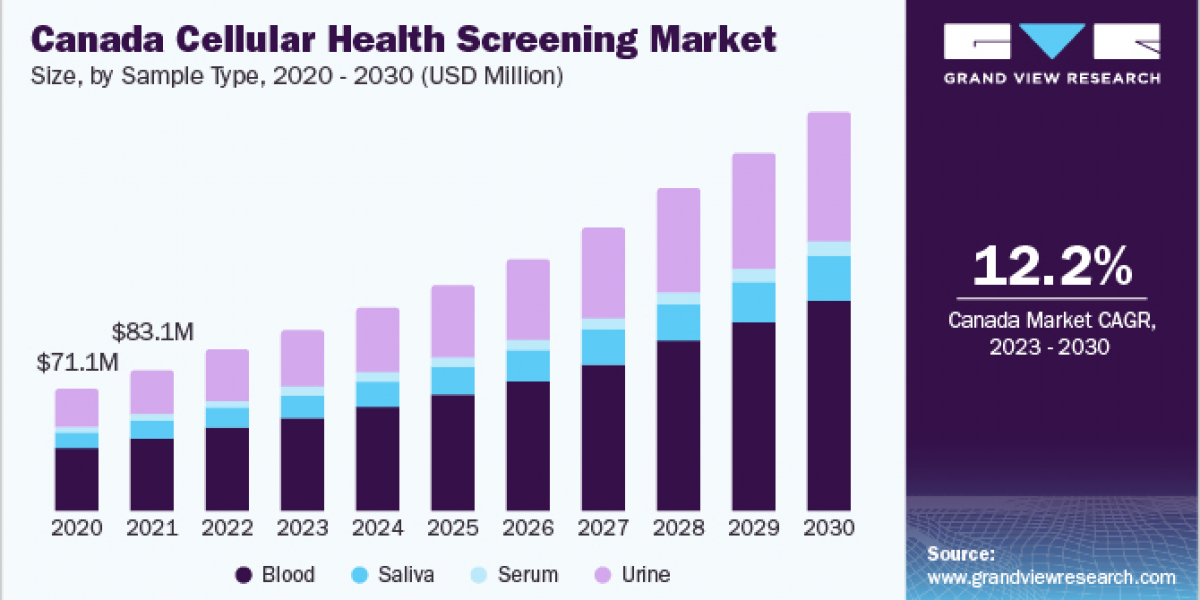The global cellular health screening market was valued at USD 2.78 billion in 2022 and is projected to experience a compound annual growth rate (CAGR) of 9.2% from 2023 to 2030. During this period, the significance of precision medicine is expected to rise, particularly with the growing need to analyze biomarkers related to aging and overall cellular health. Cellular health screening is essential for monitoring how the body responds to various treatment regimens, which is likely to further drive market growth.
However, the COVID-19 pandemic had a notable impact on companies providing cellular health screening products and services, leading to a decrease in sales and overall testing volumes. Government-imposed mandates related to the pandemic, combined with transportation restrictions and limitations on the import and export of raw materials, disrupted supply chains significantly. In response to the reduced demand stemming from these supply chain challenges, many businesses diversified their product offerings to include COVID-19 molecular and antibody testing. This strategic expansion was aimed at offsetting the decline in traditional testing volumes and maintaining market presence during challenging times.Bottom of Form
Gather more insights about the market drivers, restrains and growth of the Cellular Health Screening Market
Test Type Segmentation Insights
The single test panels segment accounted for the largest share of the market, reaching 79.08% in 2022. Among the various cellular health screening tests—focused on telomere length, inflammation, oxidative stress, and heavy metals—the telomere single test panel is projected to experience the fastest growth during the forecast period. This trend can be linked to numerous research studies that have established a connection between telomere length and various molecular and cellular functions. Additionally, the introduction of new testing devices designed to measure telomere length is also driving this growth. For example, in September 2021, Genomic Vision launched the TeloSizer, a device aimed at enhancing the use of telomeres in biomarker discovery through its accurate and quantitative detection capabilities.
On the other hand, the multi-test panels segment is anticipated to experience rapid growth throughout the forecast period. The ability of these panels to screen multiple biomarkers in a single testing session offers several advantages, including enhanced diagnostic accuracy, improved precision, and reduced healthcare costs. These benefits are expected to lead to a growing preference for multi-test panels over single-use panels in the coming years.
Order a free sample PDF of the Market Intelligence Study, published by Grand View Research.









